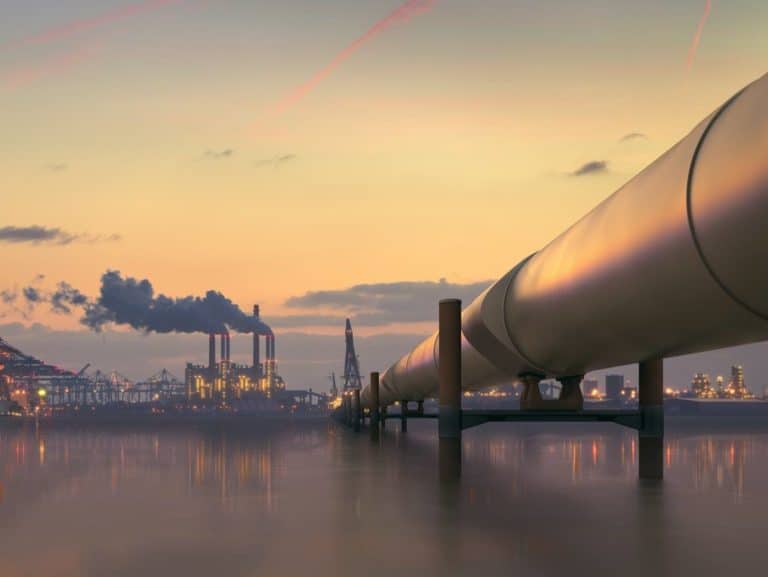The omnibus appropriations bill that President Trump signed into law on December 27, 2020 includes a provision that strengthens whistleblower protections for workers in the pipeline industry. Section 116 of the Protecting our Infrastructure of Pipelines and Enhancing Safety Act of 2020 (PIPES Act of 2020) strengthens the employee protection provision of the Pipeline Safety Improvement Act in four ways:
- Broadening the scope of coverage to include former employees, thereby proscribing post-employment retaliation, such as blacklisting. Due to consolidation in the industry, there are a few large employers and therefore there is a substantial risk that whistleblowers in the industry will experience blacklisting.
- Authorizing a pipeline safety whistleblower to remove a retaliation claim from the Department of Labor into federal court and try the case before a jury.
- Clarifying that the rights and remedies provided in the PSIA whistleblower retaliation law may not be waived by any agreement, policy, form, or condition of employment. In other words, an employer’s confidentiality or non-disclosure agreement cannot bar a pipeline worker from reporting a violation of any Federal law relating to pipeline safety or bringing a retaliation claim.
- Clarifying that pipeline safety whistleblowers are not required to arbitrate PSIA retaliation claims.
Pipeline Safety Whistleblower Protection Law
The Pipeline Safety Improvement Act of 2002 protects employees who blow the whistle on a violation of any order, regulation, or law related to pipeline safety. Protected conduct includes:
- Providing information to the employer or the federal government about a violation of any order, regulation, or law related to pipeline safety;
- Refusing to participate in an activity that would violate any order, regulation, or law related to pipeline safety;
- Testifying before Congress, or at any federal or state proceeding related to pipeline security; or
- Commencing or participating in any proceeding related to pipeline safety.
Proving a Violation of the Pipeline Safety Whistleblower Protection Law
To establish a violation of the PSIA whistleblower protection provision, the whistleblowers must prove by a preponderance of the evidence that:
- They engaged in protected conduct;
- The employer knew that they engaged in protected conduct;
- The employer took an adverse action; and
- The protected conduct was a contributing factor in the employer’s decision to take an adverse action against the whistleblower.
The DOL ARB has emphasized that the contributing factor causation standard is low and “broad and forgiving”; protected activity need only play some role, and even an “[in]significant” or “[in]substantial” role suffices. Palmer v. Canadian Nat’l R.R., ARB No. 16-035, ALJ No. 2014-FRS-154, at 53 (ARB Sept. 30, 2016)(emphasis in original). Examples of circumstantial evidence that can establish “contributing factor” causation include:
- temporal proximity;
- the falsity of an employer’s explanation for the adverse action taken;
- inconsistent application of an employer’s policies;
- an employer’s shifting explanations for its actions;
- animus or antagonism toward the whistleblower’s protected activity; and
- a change in the employer’s attitude toward the whistleblower after they engage in protected activity.
Once the whistleblower proves that their protected conduct was a contributing factor in the adverse action, the employer can avoid liability only if it proves by clear and convincing evidence that it would have taken the same adverse action in the absence of the whistleblower engaging in protected conduct.
Remedies Available to Prevailing PSIA Whistleblowers
A prevailing PSIA whistleblower can recover:
- Reinstatement;
- Lost wages and benefits;
- Damages for emotional distress and anguish, humiliation, harm to reputation, and other non-economic harms; and
- Attorneys’ fees and litigation expenses.
Pipeline Safety Whistleblower Protection Lawyers
The leading whistleblower protection lawyers at Zuckerman Law have extensive experience representing corporate whistleblowers. U.S. News and Best Lawyers® have named Zuckerman Law a Tier 1 firm in Litigation – Labor and Employment in the Washington DC metropolitan area in the 2021 edition “Best Law Firms.” In 2020, Washingtonian magazine named two of our attorneys top whistleblower lawyers.
Call us today for a free confidential consultation about your corporate whistleblower case. We can be reached at 202-262-8959 or by clicking here.








